
The pandemic has restricted most of us to our homes, and after a while spending the majority of our time indoors can become quite tedious. We’re always looking for different and interesting ways to spend our time, and pass the day! Especially on the weekends, when our work takes a backseat, and we prefer to avoid crowded bars, restaurants, and other leisure spots. One activity that I find myself indulging in from time to time is board games! Remember those? The intriguing and mindful games we spent most of our summer holidays playing with our friends and families. Board games are a productive means of passing the time, as they go beyond mindless video games, and encourage us to utilize our brain juices, creativity, and vocabulary, whether it’s a game of Chess or Pictionary! However, designers have been adding modern twists and turns to the classic games we spent most of our childhood playing. These innovative games retain the essence of the iconic games of old while making them more entertaining and exciting. From a display tablet that lets you play all your favorite board games virtually to a rollable chess set, each game in this list will take you on a playful trip down memory lane!
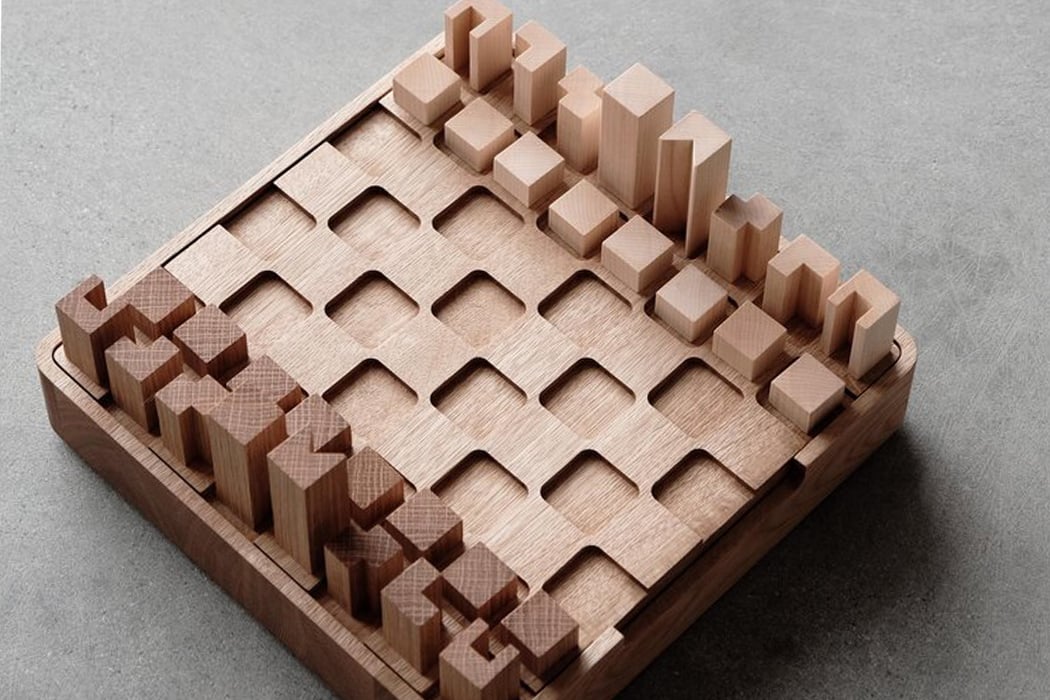
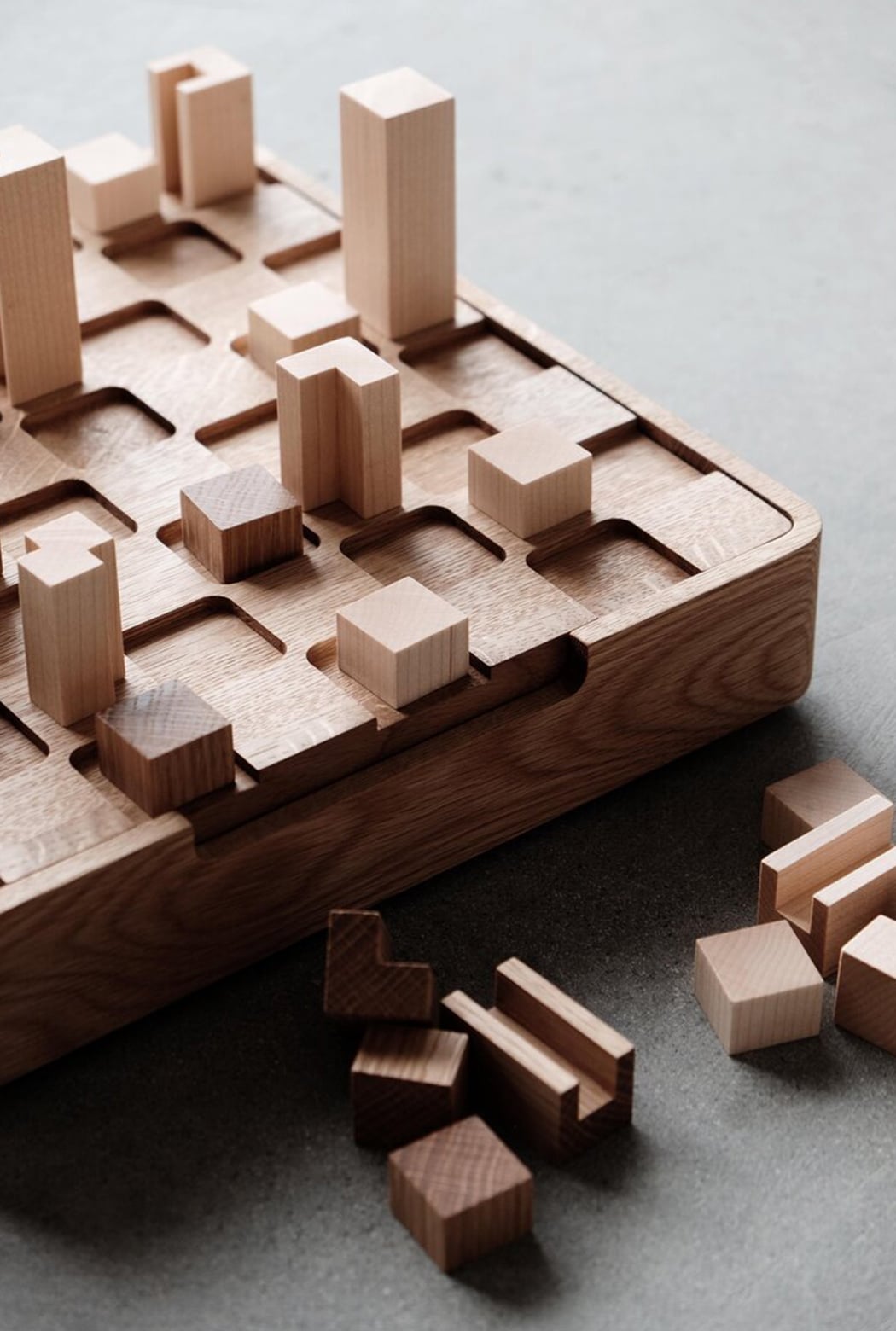
With such a classic — instantly recognizable design – how does one reimagine the visual aesthetic of a chessboard? There are chess piece sets modeled after skyscrapers, popular TV characters, mythical creatures, abstract shapes, etc. Many board game creators have experimented with new chess board designs, but this chess + checkers set stands out from the crowd, despite the competition in its arena. What makes the Origins Check – Chess Set different from other interpretations of this classic game design? The set as a whole encapsulates an elegant, minimalistic aesthetic, but the pièce(s) de résistance are the chess figurines themselves. The characters take on simplistic, abstract profiles that represent each piece’s role or how they would move across the board. For instance, the knights are cut into L shapes to indicate their directional movements. The pawns’ roles are reflected in the simplicity of their shape: just rectangular blocks – which can also double as checkers pieces. The abstract nature of this design may alienate beginners, who might not be as familiar with the pieces. However, one could argue that a novice chess player may not want this particular board set in the first place due to the price tag.
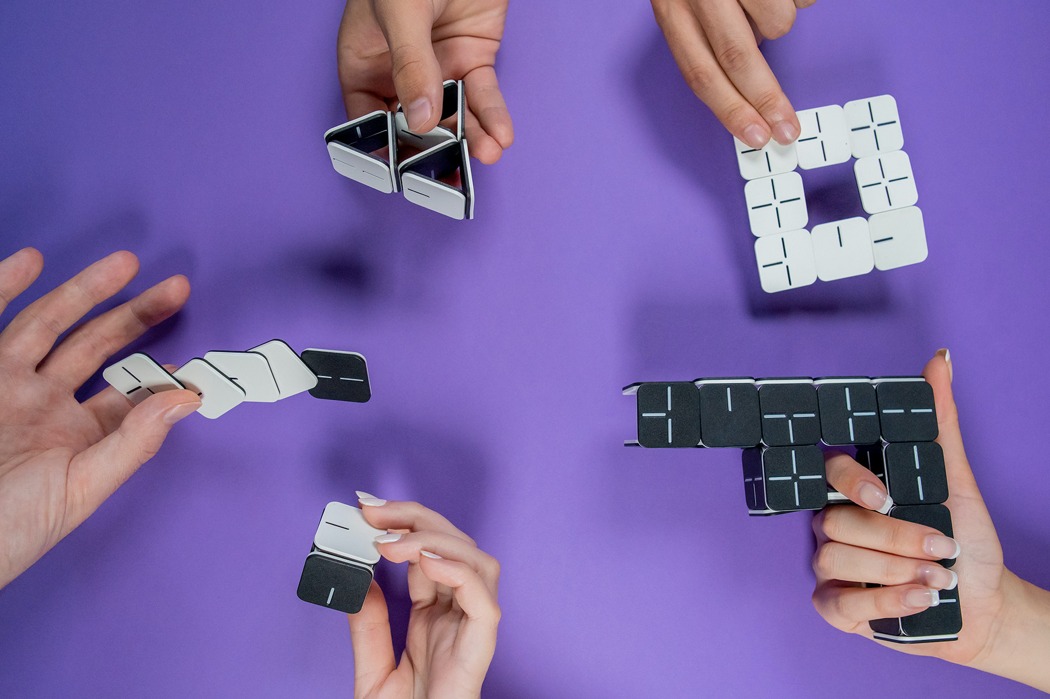

The best way to describe the GEMJI is by calling it a game system. This means that GEMJI’s tiles can be used to devise and play multiple types of games for various audiences across all age groups. Younger GEMJI-players can use it to create mazes, while more proficient youngsters can snap multiple tiles together to build complex 3D models. If you’re looking for less of a creative outlet and more of a traditional game, the GEMJI’s black-and-white pieces can be used to play anything from Chess to Draughts, Jenga, Go, Mahjong, Backgammon and even devise your own games along the way! Each GEMJI box-set comes with 70 of those dual-color magnetic tiles, along with a playbook of 30+ games you can play (including GEMJI’s own original games) and an online app that promises many more games with future updates. Moreover, the system can be even used as a framework for learning specific skills – for example – programming fundamentals (yes, there are games for that, too). To make it easy to travel with, the box even packs a traveler’s pouch so that you can carry it wherever you go.
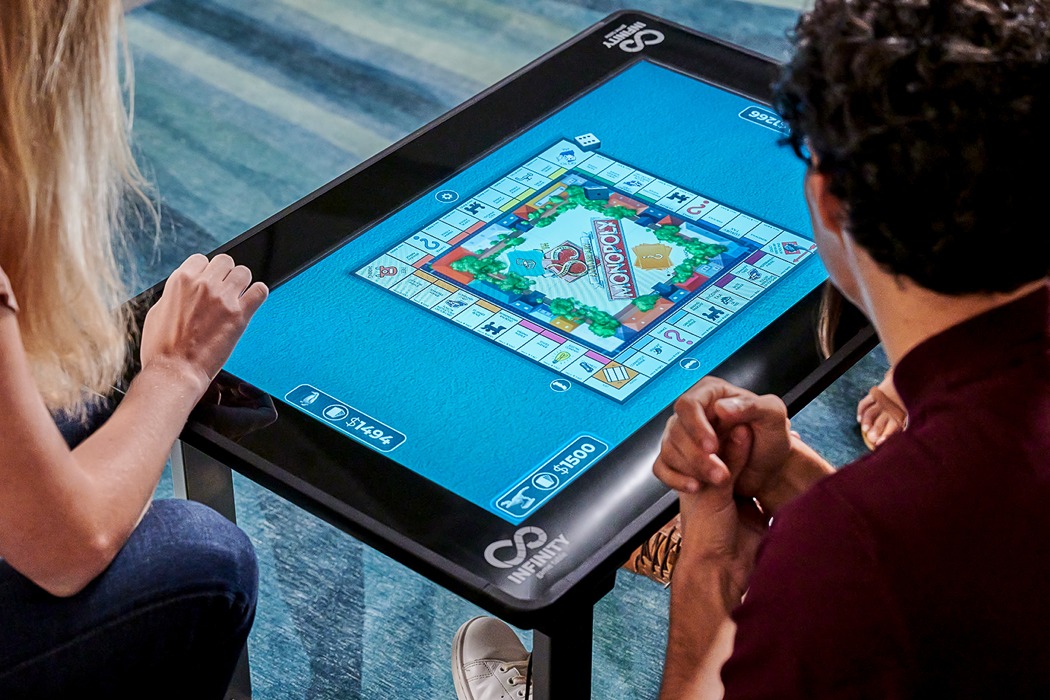
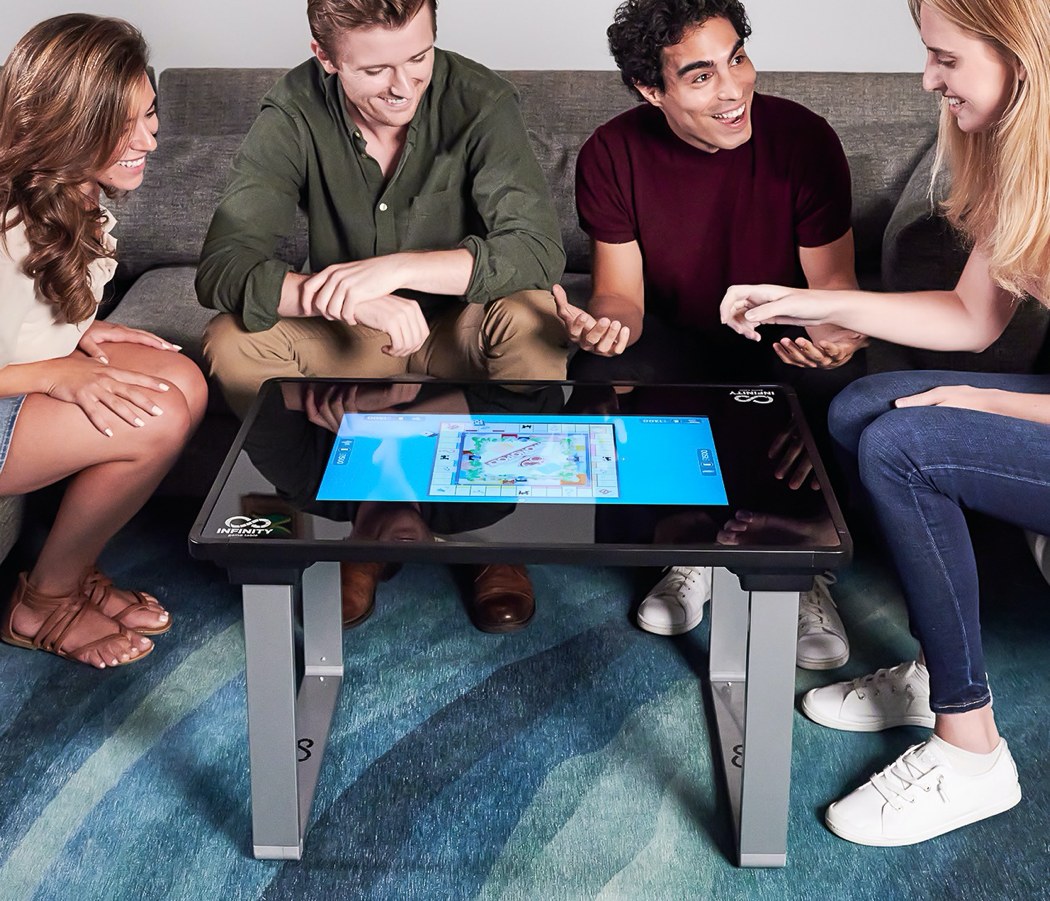
Designed by Arcade1Up, the same group of people who brought back cabinet-style arcade games like Pac-Man, Frogger, Mortal Kombat, TMNT, Street Fighter, Galaga, and other iconic classics to life (seriously, you should check their website out), the Infinity Game Table is the ultimate piece of gaming furniture. Designed to be just like the coffee-table you’d play board games or assemble jigsaw-puzzles on, the Infinity Game Table comes with a touchscreen display built into its surface that lets you play a multitude of board games from Monopoly to Yahtzee, Scrabble, Trivial Pursuit, Candyland, Hungry Hippos, Tic Tac Toe, and a whole bunch of other games including indie titles (with new ones being added every day). The dynamic display even allows you to assemble jigsaw puzzles, and since everything is virtual (as opposed to physical board games), you can potentially save your progress and continue playing your game after a couple of days, starting where you left off!
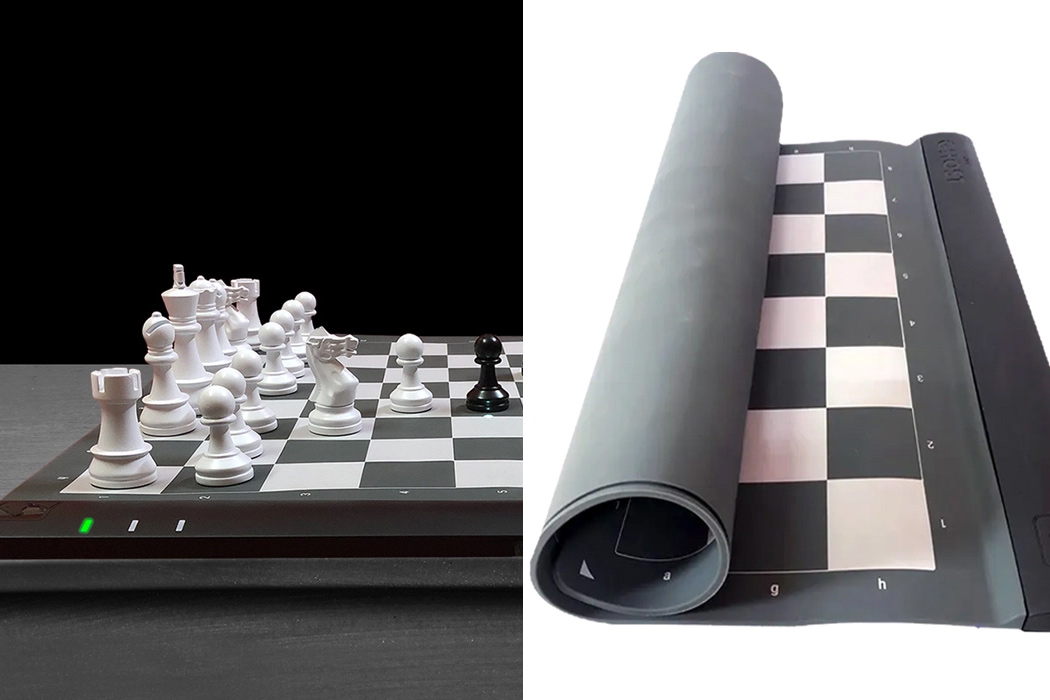
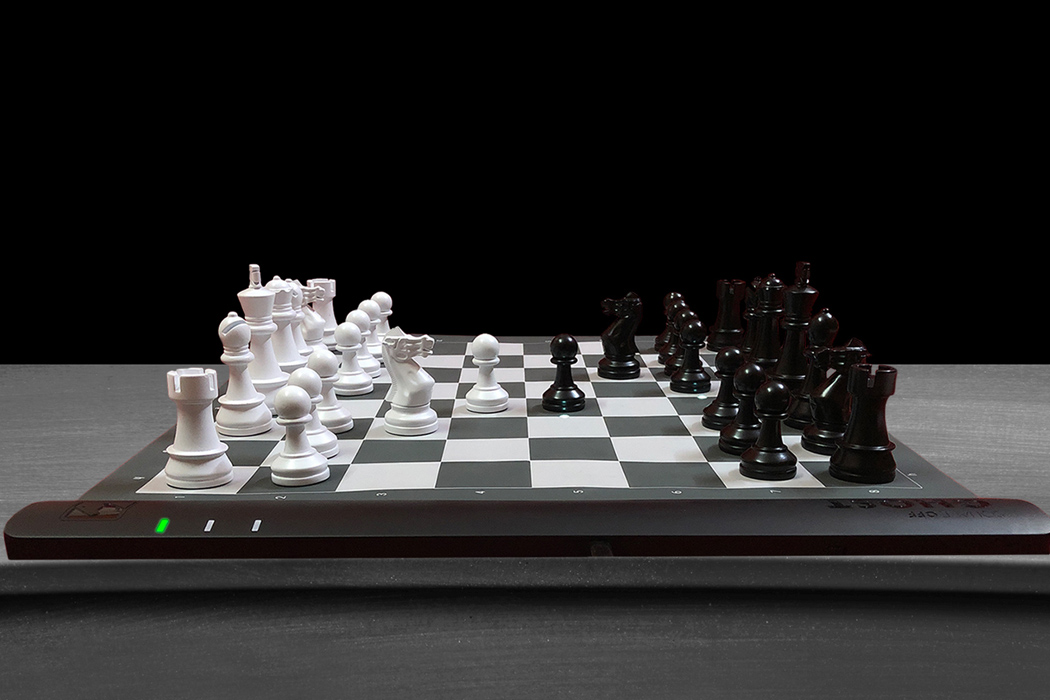
What started as a game played with simple DIY chess pieces and a very basic board has ever since seen innumerable iterations – bringing new board styles, set-piece designs, and what not! The game has seen a drastic technological evolution in the form of the Squared Off chess set with self-moving pieces that let you play against opponents from across the world. Yes, as the remote player moves the pieces on his/her board, the pieces move on your board and vice versa. Now, the budding start-up is bringing to the fore a rollable chess set that can be stashed in your backpack or postman bag. The self-moving pieces are not a luxury in this chessboard and for obvious reasons as the technology doesn’t exist wherein you can roll up a board with all the advanced components that make the self-moving magic possible. None-the-less, this new version of Square Off’s chessboard revealed at CES 2021 retains the AI and connected tech – allowing you to play with buddies or complete strangers globally.
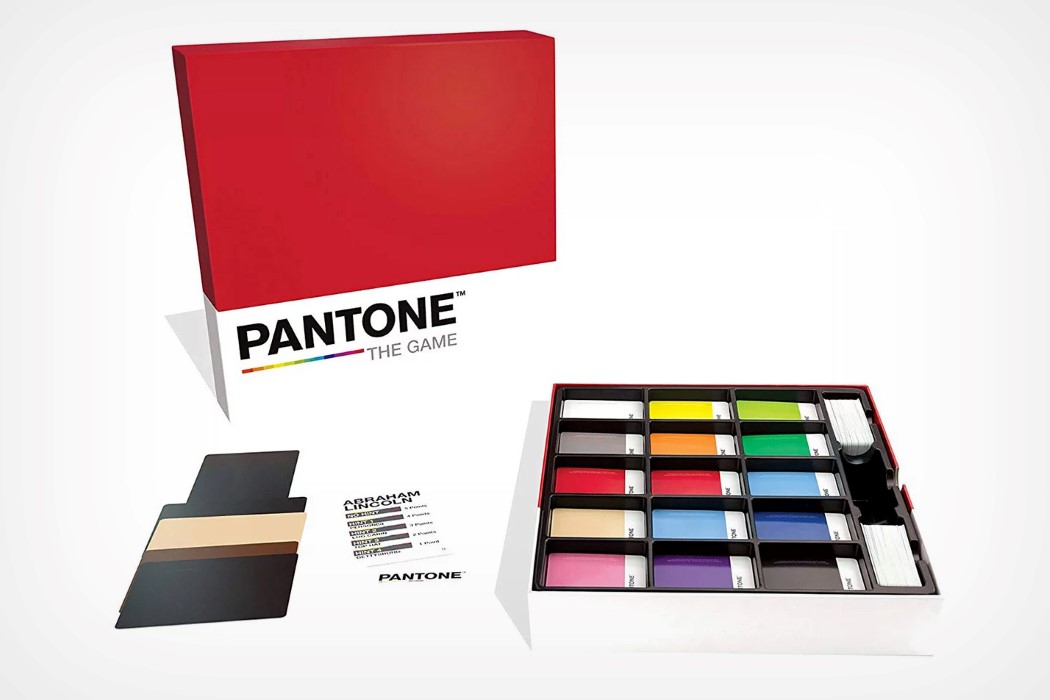
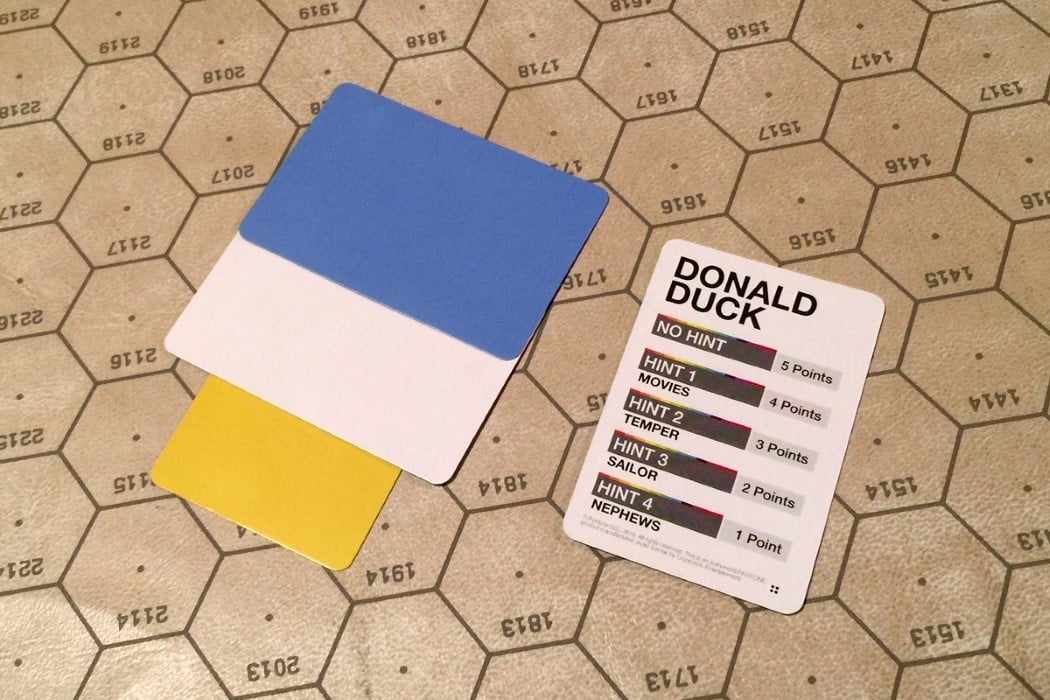
Putting Pantone’s deliciously colorful swatches to a different use, Pantone: The Game replaces the drawing element of Pictionary with the ability to depict imagery through Pantone’s color swatches. The game comes with a set of 60 Swatch Cards in 15 different colors, and as many as 132 character cards. The gameplay is simple. Read the card and build the character using Pantone’s swatches. You can use as many as you like, but be warned… more isn’t necessarily better! Overlap cards to create unique shapes and minimalist representations and have your team members guess the answers! There are hints provided too if you’re paired with people who lack a certain artistic and creative sense… there’s always one or two of them. Pantone: The Game is a wonderful way of combining the joy of color with the joy of gameplay. The swatches are inspired by Pantone , the world’s leading color expert, while the question-cards feature characters from pop culture, with very distinct color palettes.
, the world’s leading color expert, while the question-cards feature characters from pop culture, with very distinct color palettes.
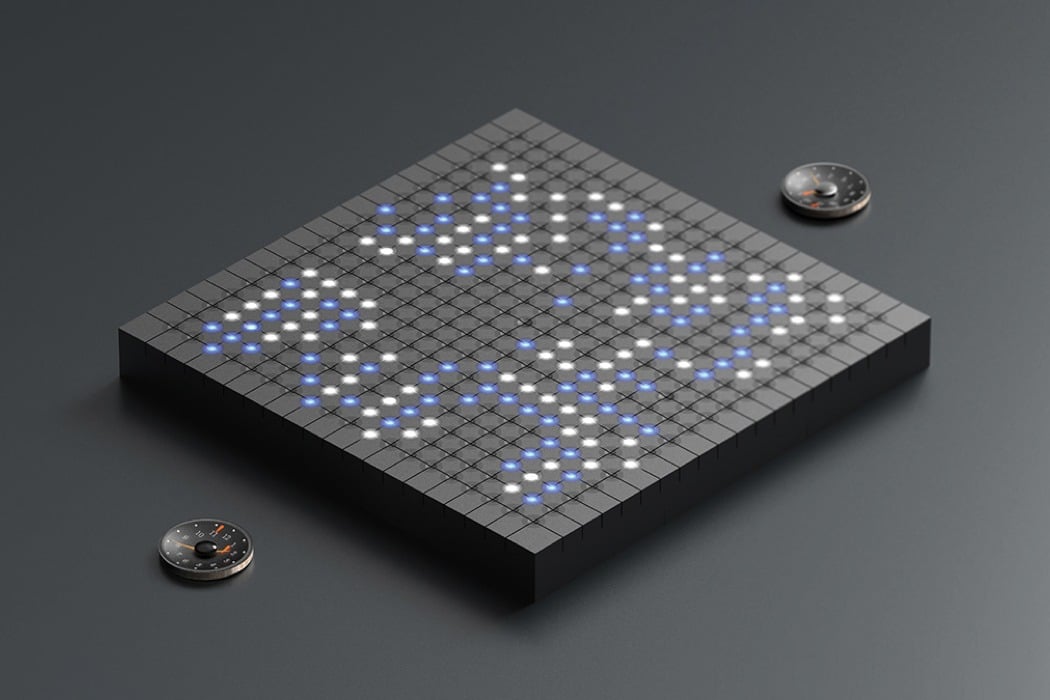
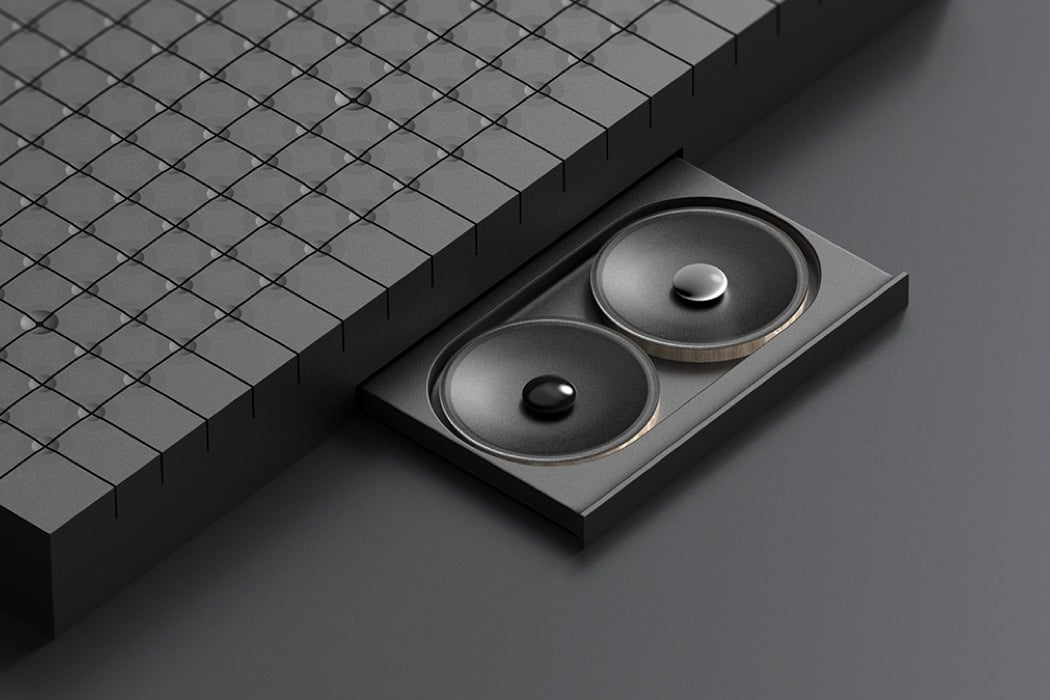
Baduk or Go is a strategic board game that has fuelled a competitive feud between players for thousands of years, but don’t you think that it’s about time that one of the oldest known board games is due a refresh? Well, Bo offers just that, as it introduces an element of futuristic flair into the unique Asian classic. As opposed to requiring multiple Baduk stones to play, it instead utilizes the engaging and visible properties of light to indicate the positioning of the ‘stones’. This not only creates a clear, fuss-free aesthetic but also allows the colors to create an engaging and captivating visual that transports the wooden-board game into the 21st Century! Every single element of the game has been designed to complement one another and elevate the gameplay; each stone place-matt doubles as a Baduk watch, which, when not in use, neatly resides in the body of the board.
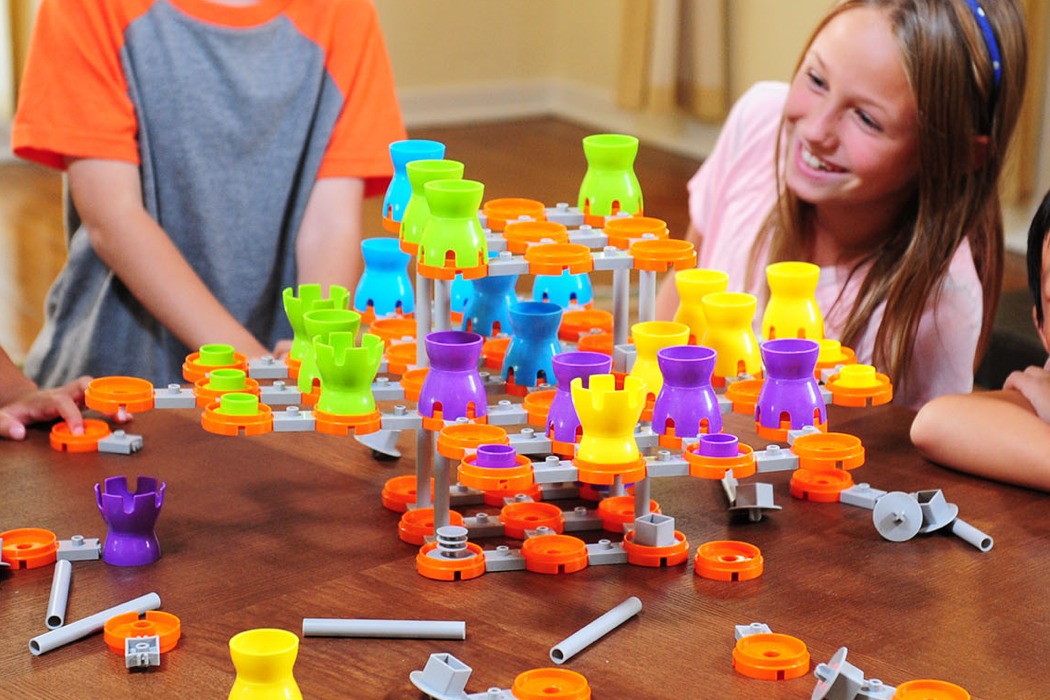
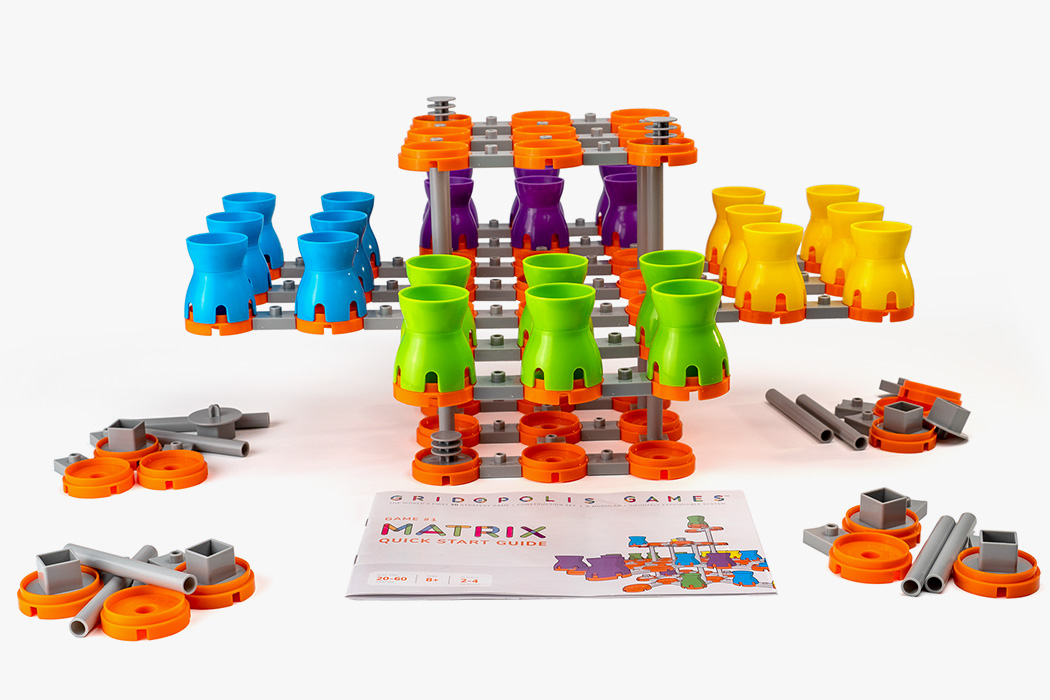
Gridopolis was designed by Dave Schultze, an award-winning designer who believed board games had a tendency to become restrictive and repetitive. With a dynamic gaming surface that exists in 3 dimensions, Gridopolis embraces adventure, prompting you to exercise your creativity to build a multi-level gaming surface. Depending on the game-length and complexity, you can build a board that’s either conforming or completely haphazard… and rather than be restricted to the board you’ve built, Gridopolis even lets you expand your board’s design as you go, adding multiple twists to the game. Gridopolis, in every way, is the antithesis of board games. A combination of building, playing, and overall strategy, Gridopolis even has flexible rules. The box set comes with a set of gaming guidelines, but Schultze encourages people to develop their own rules and strategies. Whether you want to play variations of chess, draughts, ludo, or backgammon, with two, three, even four players, Gridopolis provides you with the framework and ability to build your own board, and design your own game.
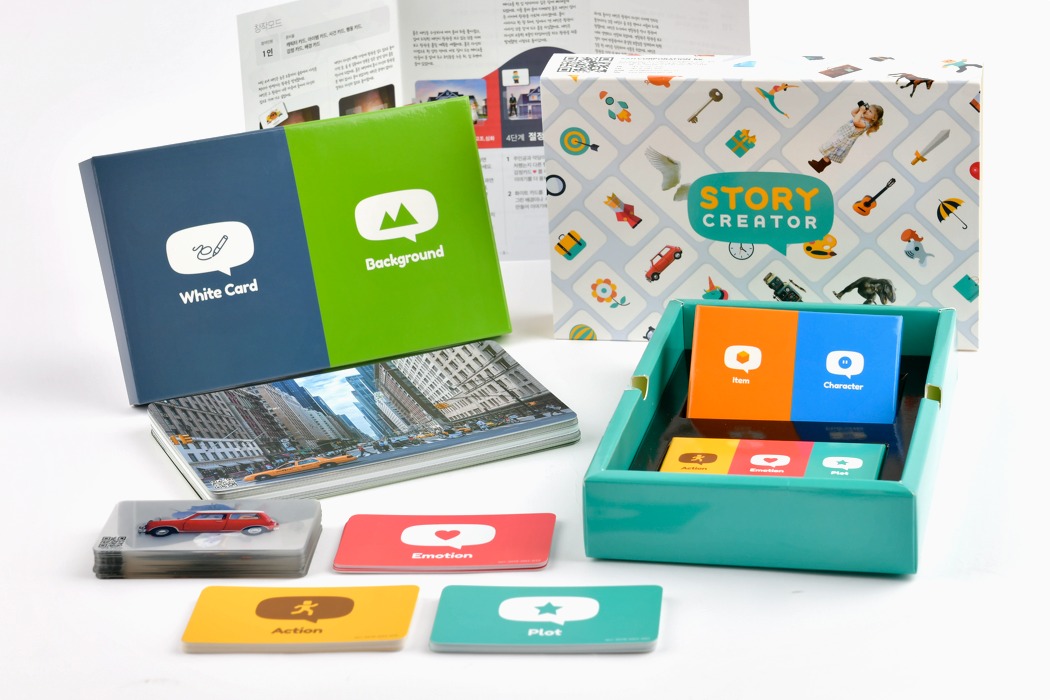

The beauty of the Story Creator is that it’s engaging and hands-on. Rather than kids getting their parents to read them stories, the Story Creator really puts the kid in the driver’s seat, prompting them to conjure up a story of their own. The background, plot, and character/item cards help provide a steady framework for the kid to weave their story around, but things get more and more interesting as backgrounds change, new plot-lines emerge, and new characters make their grand entry. Finally, the story is brought to a close with a climax and a finale, resulting in the plot-line being resolved and all the characters getting their happy (or not-so-happy) endings. As the stories develop, kids exercise their creativity on the fly, prompting them to be quick and keep the flow of the story going. This quick-thinking even helps them develop a strong vocabulary in the process!
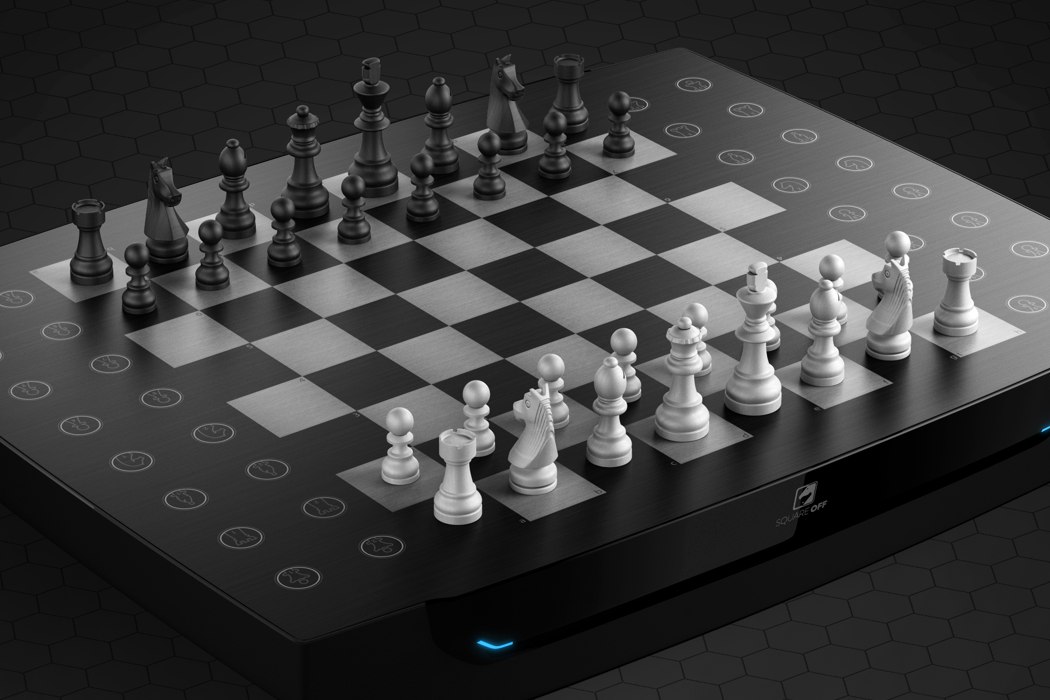
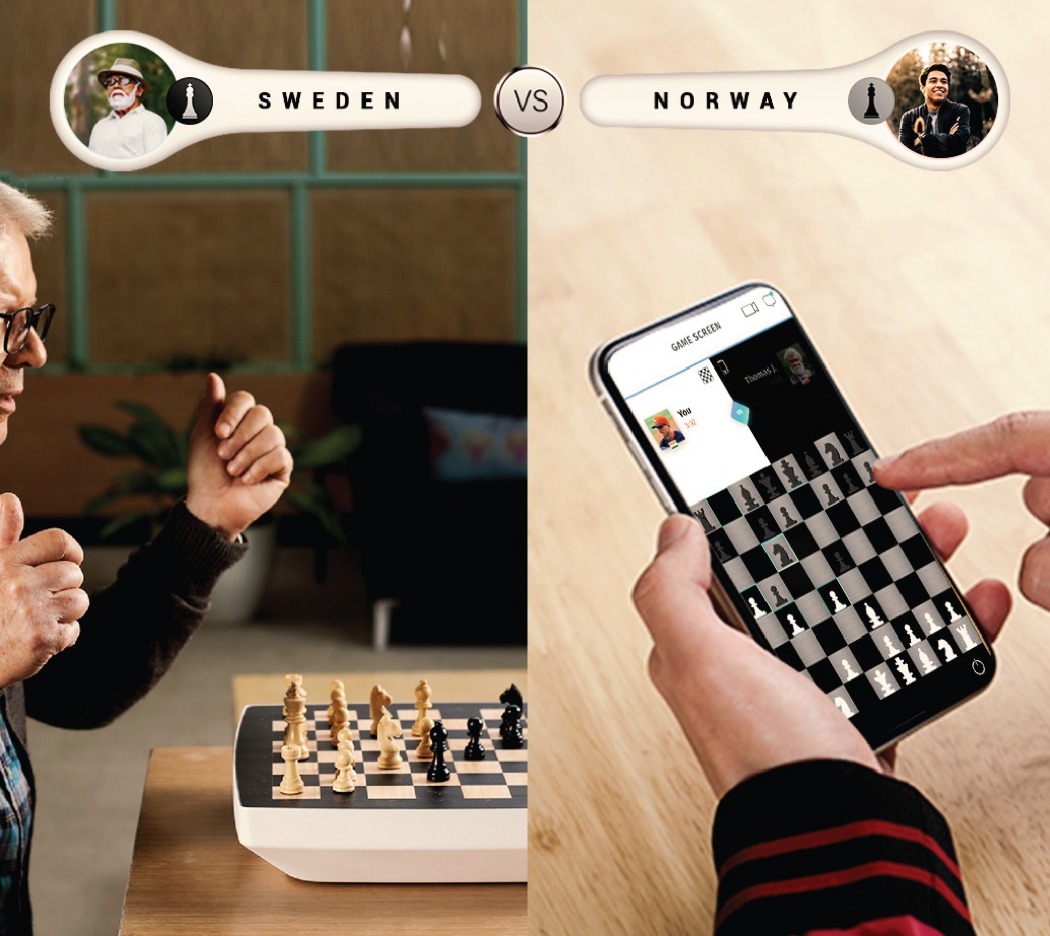
Founded by Bhavya Gohil and Atur Mehta, Square Off set on a mission to help people play board games like never before. With the Neo and Swap, that’s now possible, allowing you to play with players online, as their moves in a different country or time zone can trigger moves right on your board. You can even play against Square Off’s inbuilt AI that lets you calibrate the difficulty setting. The Neo is restricted to the game of chess, but the Swap, interestingly, lets you play more than one game. The board stays the same, but by simply swapping the Chess pieces for other flat discs, you can play Draughts, Connect 4, or even create your own game using the game’s open-source software. The board, for something as remarkable as it is, is incredibly portable, with a smooth surface and high-quality gaming pieces. It even features a training coach that goes by the name of Viktor (get it, for victory?) that you can interact with. Viktor can compete with you, guide you, and help you understand how to be a better player, so you’re much more skilled the next time you’re playing against the AI, or with your best friend who lives in the other end of the world.
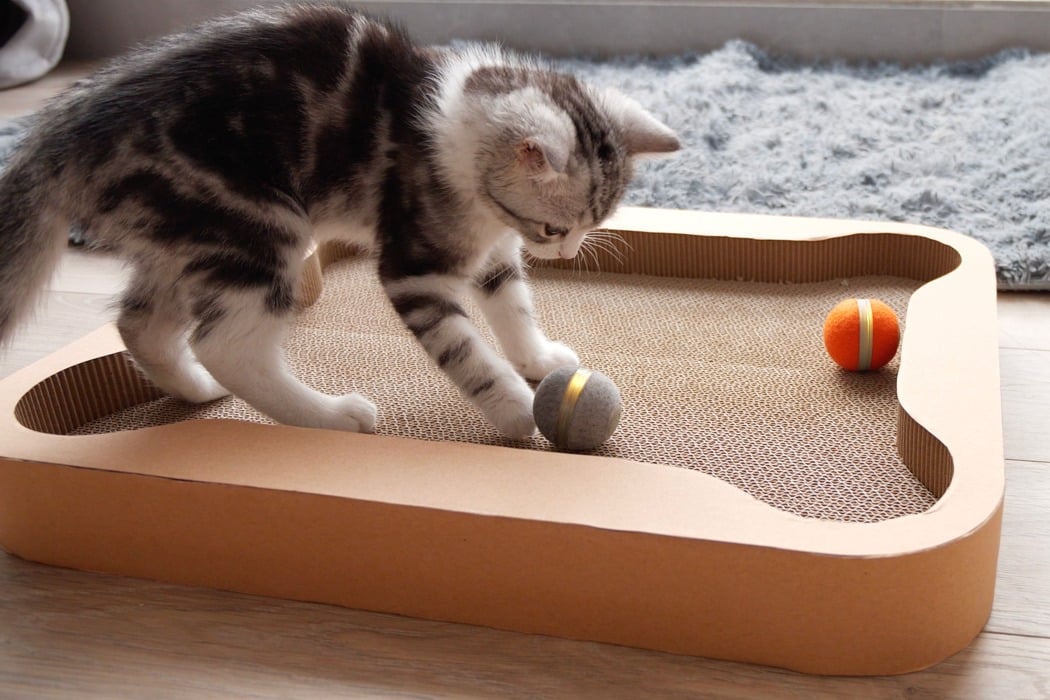
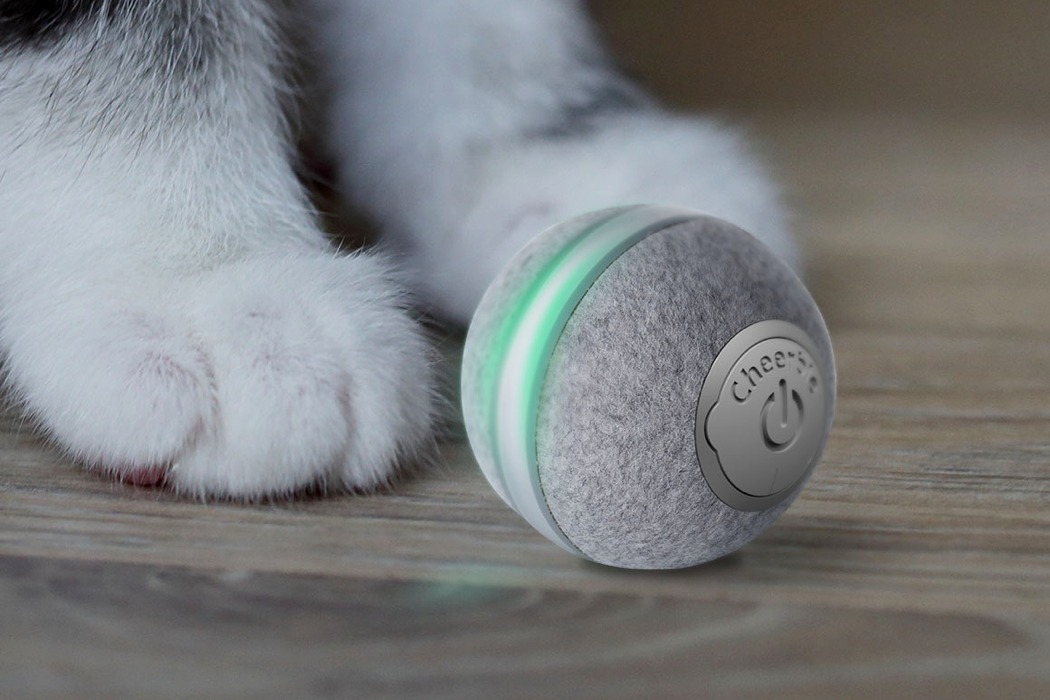
Finally, a board game for cats! All you need to entertain a dog is a stick… A cat, on the other hand, needs something more advanced, like a state-of-the-art laser light. Cats are pretty smart animals. They’re alert, nimble, and have absolutely zero interest in boring toys like chew-sticks or balls. Cats need stimulation, entertainment, and something that’s more of a challenge… which is why the guys at the Cheerble Technology Co. designed a literal board-game for them. Designed to constantly pique a cat’s curiosity, the Cheerble is a board-and-ball combination that is to cats what pinball is to humans. It features a hyperactive vibrating ball that darts around a board, while your cat constantly follows it as a predator follows its prey. At the heart of the Cheerble board game is its ball, a durable ping-pong ball-shaped device with a synthetic fiber coating that almost looks like an abstract mouse. The ball, with built-in motors and lights, can be set to one of three active settings, causing it to dart around chaotically, grabbing a cat’s attention in the process. Paired along with the ball is the Cheerble board, which comes in two variants, both with corrugated cardboard bases – the same material used to make cat-scratching posts.
via https://ift.tt/2nqSsIm
Post a Comment
Note: Only a member of this blog may post a comment.